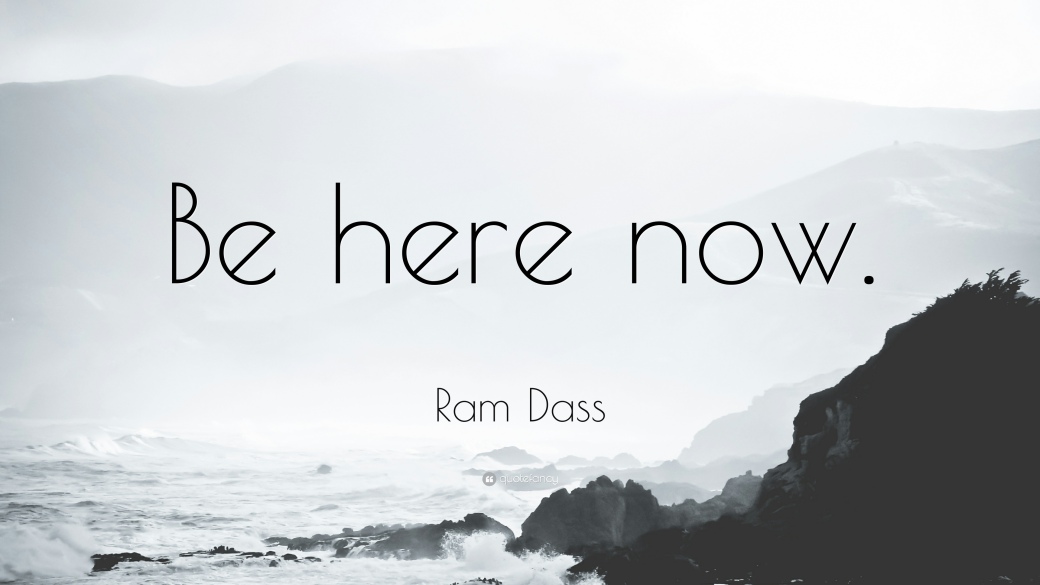
[Hello reader! This post was originally published on my Patreon page. You can go to the original post to follow the discussion by clicking here.]
In many mindfulness based practices you will hear this concept of “live in the Now.” First of all, I’d like to describe a bit what that means. Second, I’ll examine the pros and cons. Then, we can discuss.
So, what does “live in the Now” mean? It is a concept used by Buddhism, Hinduism, even Taoism (amongst others) to indicate a type of awareness practice. You may have heard the line, “If you are dwelling on the past, or planning the future, you will miss all of life!” The idea is that neither the past nor the future are happening. Why “live” in a time that does not exist?
They say, to find happiness, one must be fully present in every experience – which is happening in every moment – now, and now and now, ad infinitum. They are so short that if we get caught up in the stories in our heads, we will miss it. And if we miss it, we are living in a world which can never be real. This concept goes so far as to even be prescriptive at times, saying it will “decrease stress”, “increase happiness”, and is even suggested as both physical and emotional pain management.
But, we of course must beg the questions – why can we not plan the future? Why not examine the past? Some things do need to have thought put into them, of course. You need to think far enough ahead to pay the bills, or feed the kids, or show up to work on time. These days we need to plan for a will, so we are even considering the time after our lives are over. And people who have had trauma (yep, that’s everyone to some degree) find it beneficial to speak with therapists and councilors, amongst others, about what happened (past tense). It is also quite fascinating to track our DNA and genes into our ancestry (the past) for various reasons, not limited to health and wellbeing, for future benefit.
Of course the argument about depression and anxiety comes up, amongst other conditions of living. People who are so involved in what they are feeling (or not feeling) that they can’t see the benefit of the future, let alone see that their experience will pass, and sometimes this goes so far that they take their own lives. Or people who are so focused on the past or the future that they experience continuous and intense anxiety.
There are, and should be, other aspects to learning and teaching meditative techniques, but often in the media we only hear of “mindfulness,” a term which most of us associate with some form of “living in the moment,’ without any other aspect of the practice. There is so much emphasis in the “mindfulness” movement one people ‘living in the moment’ that it can accentuate conditions such as depression and anxiety, but also is present in other conditions like bipolar and borderline-personality disorder.
Despite the potential for harm, we hear of the good outcomes—that it helps people stop getting caught up in the stories (that often are of the past or future) and experience a sense of relief of stress, greater happiness, peacefulness, a deeper intimacy in all their relationships, etc. And it can also be quite helpful for people who have PTSD, depression, anxiety, etc. so long as it is taught in conjunction with other management skills like setting routines, journaling, talking to a counselor or taking medication.
So, the questions I’d like to pose today – how beneficial is living in the moment? Can we live fully in the moment and still consider the important things we need to pay attention to in the past or future? Is it beneficial to just learn momentary awareness without any other practices? Why or why not?